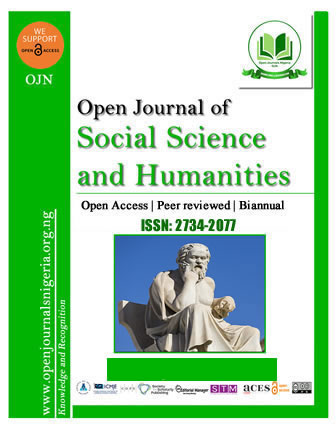ON HOW THE CHURCH AND THE STATE CAN ADVANCE EACH OTHER’S ENDS, USING LUTHER’S TWO-KINGDOM THEORY AS A MODEL
DOI:
https://doi.org/10.52417/ojssh.v3i1.383Keywords:
church, church authority, ecclesial authority, ends, goals, Martin Luther, secular authority, spiritual authority, State authority, temporal authorityAbstract
Due to the doctrinal disagreement between Martin Luther and the ecclesial authorities of his time, he was excommunicated from the church and his books were banned from being read by the public. Luther, a Catholic priest and monk, was however surprised to see secular/temporal authorities, making laws to enforce these ecclesial sanctions even though he had not violated any secular laws. His followers too were confused whether they should obey or disobey the state law forbidding them to associate with Luther or read his books. This situation compelled Luther to release his treatise on, Temporal Authority: The Extent to Which It Must Be Obeyed. In the treatise, he categorized the Church and the State into two Kingdoms: the Kingdom of God and the Kingdom of the world respectively. He also made a demarcation between their jurisdictions, urging them not to encroach into one another’s field of authority for the good of the citizens and the society. This Luther’s distinction of the society into two parallel but divergent kingdoms with different goals or ends, re-echoes the two kingdoms traditions by earlier scholars, although having its own originality which marked it from others. The researcher goes on to examine the content of Luther’s two kingdoms theory; whether it can be applied to modern societies, and concludes that with the application of Luther’s two-kingdoms model, it is possible for Church and State in modern times, to attain their respective goals and still maintain a harmonious relationship and even assist each other to attain their respective goals or ends.
Published
How to Cite
Issue
Section
Copyright (c) 2022 Abang

This work is licensed under a Creative Commons Attribution 4.0 International License.





















